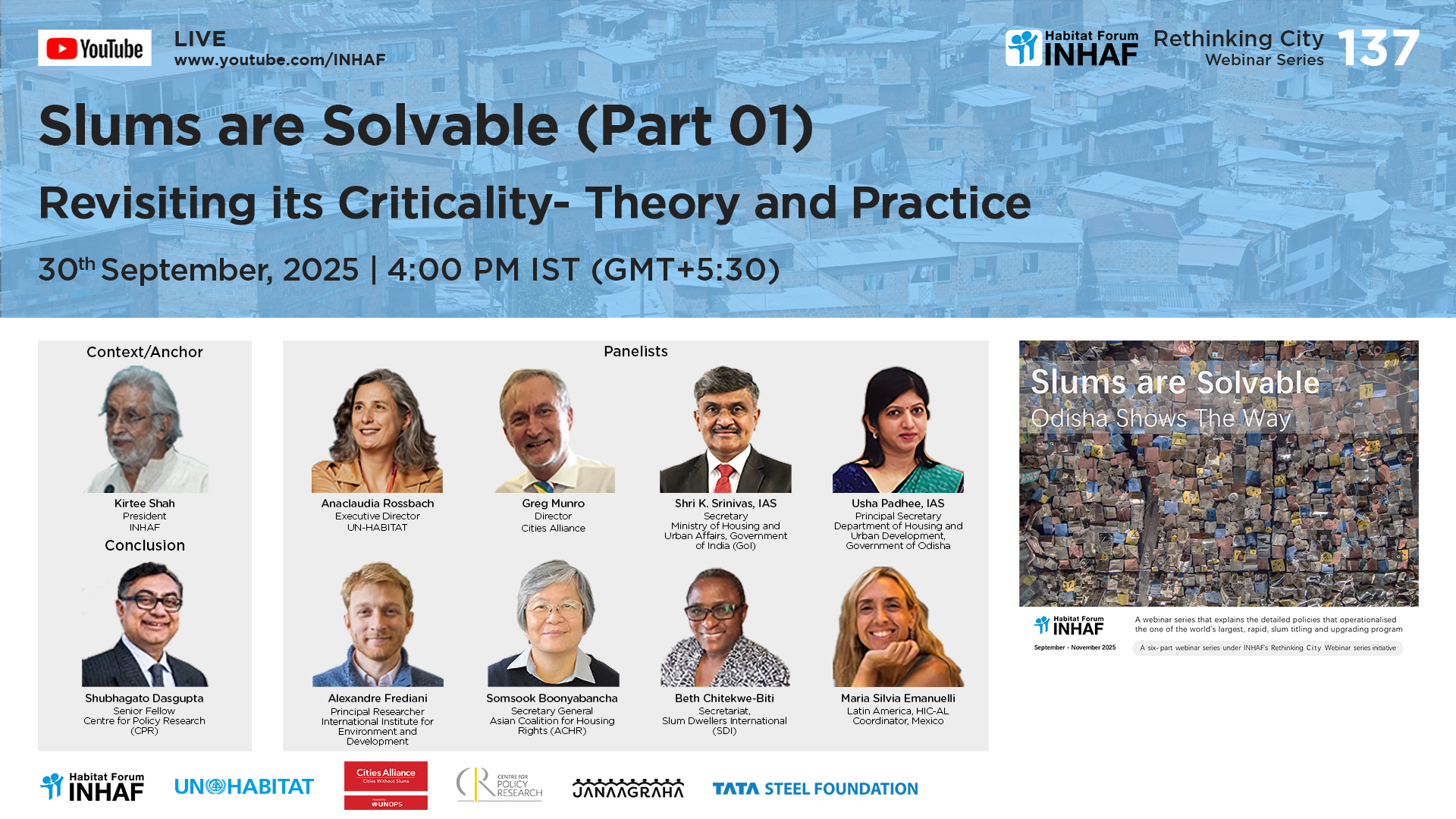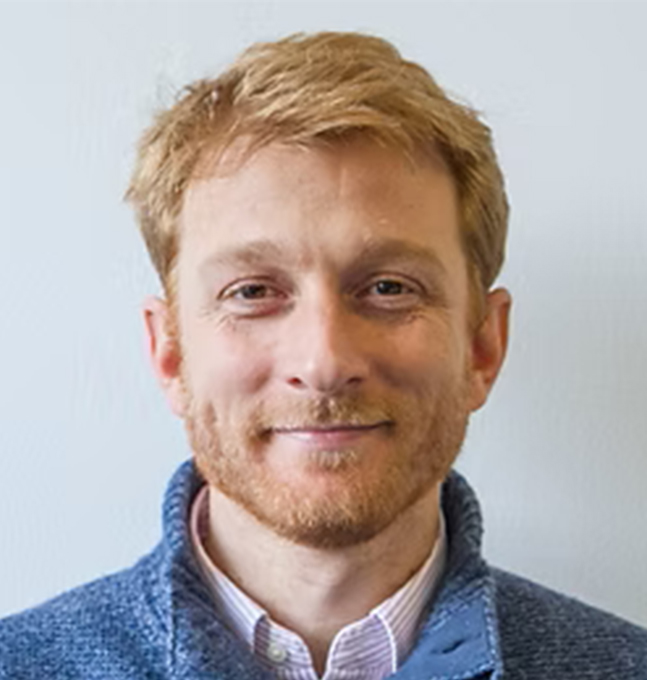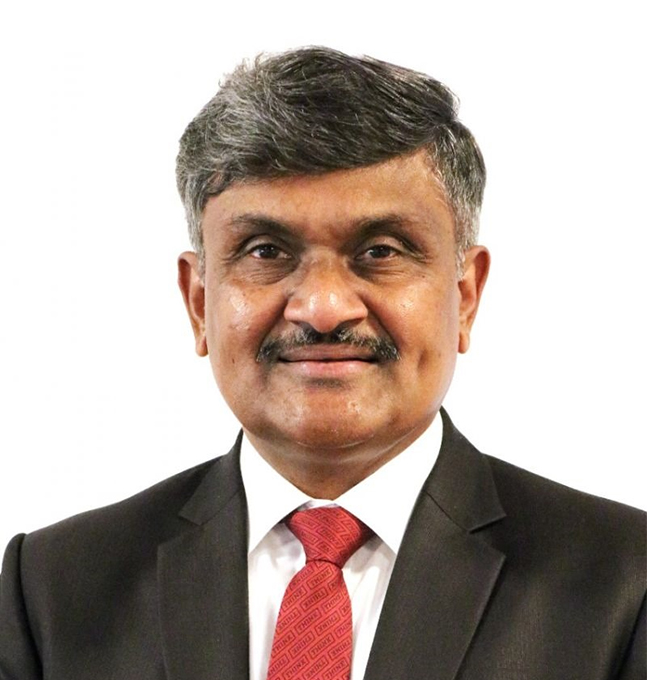
Speakers
-
 Alexandre FredianiPrincipal Researcher, International Institution for Environment and Development (IIED)
Alexandre FredianiPrincipal Researcher, International Institution for Environment and Development (IIED)Alexandre co-convenes IIED’s work on housing justice, specialising in human development in cities of the Global South. He promotes community-led and participatory approaches to housing policy, working with grassroots organisations, NGOs, governments, and multilateral agencies. An advisor to Architecture Sans Frontières UK and board member of Habitat International Coalition and the Sierra Leone Urban Research Centre, he holds a PhD in Planning from Oxford Brookes University. His current work includes convening the Hub for Housing Justice, researching grassroots housing initiatives in Nigeria, Brazil, India, and Nepal, and coordinating IIED’s collaborations with multilateral agencies, as well as co-chairing the G20 Civil 20 working group on Philanthropies and Sustainable Development.
-
 Anaclaudia RossbachExecutive Director, UN-HABITAT
Anaclaudia RossbachExecutive Director, UN-HABITATAnaclaudia Rossbach is the Executive Director of UN-Habitat and an economist with over 20 years of experience in housing, informal settlements, and urban policies. She was appointed Executive Director of UN-Habitat at the Under-Secretary-General level by the General Assembly, following nomination by the UN Secretary-General on 7 June 2024. Prior to this role, she was the Director for Latin America and the Caribbean at the Lincoln Institute of Land Policy and served as Regional Manager for Cities Alliance, where she founded the Urban Housing Practitioners Hub. Prior to that, with the World Bank, she oversaw the development and implementation of Brazilian housing and slum-upgrading policies. Ms. Rossbach has actively contributed to global urban policy discussions and has a strong academic presence in the field.
-
 Beth Chitekwe-BitiSecretariat, Slum Dwellers International (SDI)
Beth Chitekwe-BitiSecretariat, Slum Dwellers International (SDI)Beth Chitekwe-Biti has been at the SDI Secretariat since 2019 where she served as the Deputy Director and Acting Managing Director. Beth was the Founding Director of the SDI Zimbabwe affiliate NGO, Dialogue on Shelter that works in alliance with the Zimbabwe Homeless People’s Federation to advocate for secure tenure and inclusive human settlements. She played a pivotal role in the establishment of SDI processes in Zambia, Malawi and Botswana. Beth holds a planning degree from the University of Zimbabwe, a Postgraduate Certificate in Housing from the University College of London, and a PhD in Development Policy and Management from the University of Manchester.
-
 Greg MunroDirector, Cities Alliance
Greg MunroDirector, Cities AllianceGreg Munro has a background in public health and local government. He has a wide international development experience as a local government official in South Africa and leading programmes for organizations including the World Bank and UNAIDS. In 2016 he joined the Commonwealth Local Government Forum (CLGF) as Secretary-General. In 2021 Greg was appointed Director of Cities Alliance, a global partnership hosted by UNOPS, which seeks to address the challenges of urban poverty, particularly in secondary cities in developing countries.
-
 Maria Silvia EmanuelliLatin America, HIC-AL Coordinator, Mexico
Maria Silvia EmanuelliLatin America, HIC-AL Coordinator, MexicoMaria is a specialist in human rights, housing, and urban development with over 20 years of experience in advocacy, inclusive policy promotion, and housing rights. She has coordinated regional networks, led projects with public and international agencies, and sponsored Mexico’s first strategic litigation on the right to water and the first legal clinic for housing. Her work spans media, publications, and events, and she currently co-edits the De Gruyter Handbook of Housing Justice, co-founded the Global Observatory of Temporary Rentals (OGAT), serves on advisory boards, coordinates academic programs, and supports legislative processes on housing and the right to the city across Latin America.
-
 Shri K. Srinivas, IASSecretary, Ministry of Housing and Urban Affairs, Government of India
Shri K. Srinivas, IASSecretary, Ministry of Housing and Urban Affairs, Government of IndiaShri K. Srinivas, IAS (Gujarat, 1989 cohort) currently serves as Secretary in the Ministry of Housing and Urban Affairs, Government of India. He holds a Bachelor of Arts in Political Science and an LL.M. Over his three decades in public service, he has held senior positions at both state and central levels, including Principal Secretary roles in Gujarat, Managing Director of Gujarat Urban Development Company, and leadership roles in the Chief Minister’s Office. At the central level, he has served as Joint Secretary in the Department of Personnel & Training, Establishment Officer, and Director of the Lal Bahadur Shastri National Academy of Administration (LBSNAA).
Appointed as Housing & Urban Affairs Secretary in August 2024, he now leads the Ministry’s work on urban policy, housing for all, sustainable infrastructure, and city governance reforms. -
 Shubhagato DasguptaSenior Fellow, Centre for Policy Research (CPR)
Shubhagato DasguptaSenior Fellow, Centre for Policy Research (CPR)Shubhagato Dasgupta is a Senior Fellow at CPR and heads the Scaling City Institutions for India (Sci-Fi) Sanitation initiative. His research focuses on drinking water and sanitation in India and globally, particularly on flagship government programs, service delivery challenges in smaller cities, urban infrastructure financing, and housing and slum rehabilitation. He previously led the Support to National Policies for Urban Poverty Reduction project and has held senior roles at the World Bank, IDFC, HUDCO, and other institutions, as well as worked on urban water and sanitation projects in Africa. Trained as an architect at CEPT University, he holds an MSc from UCL and is currently pursuing a PhD at the University of Amsterdam.
-
 Somsook BoonyabanchaSecretary General, Asian Coalition for Housing Rights (ACHR)
Somsook BoonyabanchaSecretary General, Asian Coalition for Housing Rights (ACHR)Somsook Boonyabancha is Secretary-General of the Asian Coalition for Housing Rights, a network supporting urban poor housing development across Asia, and was previously director of Thailand’s Community Organizations Development Institute (CODI). Born in 1951, she graduated from the Faculty of Architecture at Chulalongkorn University and completed the Housing and Urbanization Course in Copenhagen. With over 30 years of experience in urban and rural community-led development, slum upgrading, and disaster rehabilitation, she has led national city-wide community upgrading initiatives in Thailand, now replicated in multiple cities. Currently, she is leading the Asian Coalition for Community Action, a regional programme driving city-wide community-led upgrading in 200 cities across 15 Asian countries.
-
 Usha Padhee, IAS
Principal Secretary, Housing and Urban Development Department, Government of Odisha
Usha Padhee, IAS
Principal Secretary, Housing and Urban Development Department, Government of Odisha
 Usha Padhee, IASPrincipal Secretary, Housing and Urban Development Department, Government of Odisha
Usha Padhee, IASPrincipal Secretary, Housing and Urban Development Department, Government of OdishaUsha Padhee, IAS (Odisha, 1996 cohort) is the Principal Secretary of the Housing & Urban Development Department, Government of Odisha, since July 2024. She has previously held senior positions in the Skill Development & Technical Education Department and the Commerce & Transport Department.
Since taking charge, she has promoted collaborative governance through the “Team Urban” initiative and a strategic approach to urban development. She also serves as interim Chairperson of the Odisha Real Estate Regulatory Authority (ORERA) and is leading key initiatives in housing, infrastructure, and institutional reforms across the state.
Local Time
- Timezone: America/New_York
- Date: Sep 30 2025
- Time: 6:30 am
Slums are Solvable (Part 01): Revisiting its Criticality – Theory and Practice
Slums are Solvable Webinar Series
Recognising the scaling potential of the Jaga Mission and its excellency in promoting the coordination of key stakeholders in the development and distribution of resources, knowledge sharing, and joint implementation.
The agencies included are INHAF, Tata Steel Foundation, the Centre for Policy Research, and Janaagraha Centre for Citizenship & Democracy, along with the UN-Habitat and Cities Alliance, have come together to organise a webinar series to provide input and insights to local, national, and international debates on how to facilitate and scale participatory and integrated approaches for slum transformation.
• The primary overall objective of the series is to deep dive into the detailed policy and programmatic work undertaken under the Jaga Mission to solve challenges faced by slum dwellers. By assembling this information, the webinar series will also act as an archive of this work. The organizing committee is also keen to try to raise resources to produce a publication out of this effort.
• This webinar series will also act as an opportunity for stakeholders across the sectors of housing and basic services, especially from Indian cities, to familiarize themselves with practical planning and management instruments that are available and that can be employed to rapidly solve issues related to inadequate housing and transform poor habitats in slums at scale.
Webinar 1: Slums are Solvable: Revisiting its Criticality – Theory and Practice
The first webinar will frame the discussion that the six webinars will cover. It will frame the local discussion within the global frameworks of the “Global Action Plan – Accelerating the transformation of informal settlements and slums by 2030” and two connected resolutions, whose implementation is championed by the Governments of India, Brazil, and South Africa.
• It will outline the dynamics of slum growth in different regions, and highlight how this development is central for the achievement of international development agendas (SDGs, climate change etc).
• It will then identify the range of conceptualisations of slums and their process-aspects, introduce concepts such as the right to adequate housing and the city, the “De Soto effect”, and Housing Justice as a framing concept among others.
• The session will further discuss how these broader theoretical conceptions and approaches have been adopted to solve for challenges in slums in practice in specific contexts in East Asia, South Asia, Africa and Latin America.
